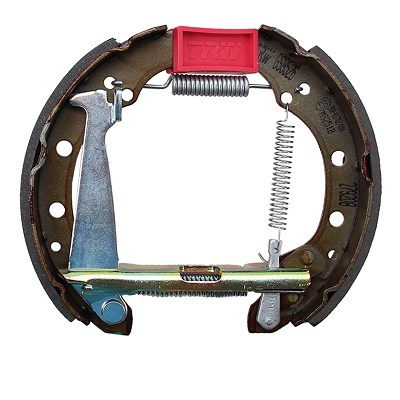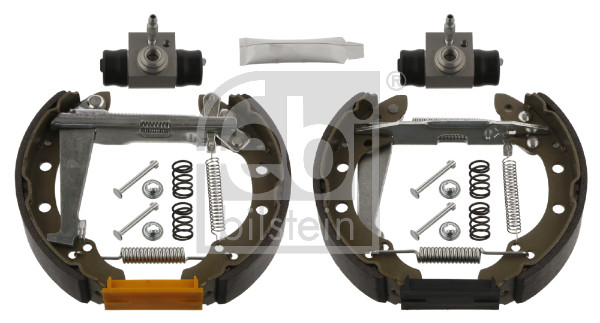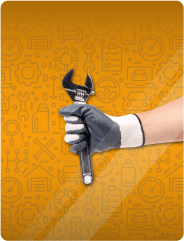Brake Shoes 
Fits SEAT IBIZA Mk II (6K1) 2.0 i
(1993)
Important compatibility info
| Piston Diameter | 19.1 mm |
| Placement on Vehicle | Rear Axle |
| Width | 40 mm |
| Outer diameter | 200 mm |
| Inspection Tag | ECE R90 Approved |
| Mounting Type | Pre-assembled |
| Function | Brake Shoe Set |
| Type | Brake Shoe Set |
| Additional Information | with wheel brake cylinder, with accessories, with fastening/mounting material |
Additional Information
General Information
These products are designed to be used as originally intended and not modified for purpose. Please ensure the products are installed by a competent individual. N.B. products are usually supplied without fitting instructions.
What are brake shoes?
Brake shoes are a critical component of the vehicle braking system. Generally speaking brake shoes are fitted to the rear brake system of a vehicle. They work by creating friction pressure inside the brake drum to bring the vehicle to a stop. The brake friction pressure is created when the brake pedal is pressed causing the brake cylinder to expand and press the brake shoes against the inside of the brake drum.
What comes in a brake shoe set?
Brake shoes are available in different packages depending on which individual parts you need to replace. Generally there are 3 ways you can buy these sets:
Brakes shoes (2 pairs included
Brake shoes with spring kit and adjusters
Brake shoes with spring kit, adjusters and brake cylinders
In most cases only the brake shoes need to be replaced however visual inspection of the brake system may show that other parts need to be replaced too. Corrosion to the shoe springs and adjusters or corrosion and even leaking oil from the wheel cylinder would indicate that these also need replacement.
How do I choose the correct brake shoes?
Brake systems are one of the most factory specific or uprated part on a vehicle. The more powerful or faster the vehicle the more uprated the brakes need to be. There are a number of things to consider when selecting the correct replacement brake shoes. It is good to take note if there are any compatibility notes listed next to a part that is shown as correct for your vehicle.
These may include:
Number of gears (i.e. 5 speed or 6 speed etc)
Manual or semi or fully automatic transmission
If the vehicle has ABS
The brand name of the brake system fitted the vehicle (noted somewhere on the brake system)
Inner diameter measurement of the brake drum
Design of the shoe. Where the holes are punched in the shoe bracket. Visual inspection may be required
Vehicle manufacture date (this is not the date the vehicle was registered but the date it was made)
VIN (chassis number sequence. Sometimes the first 3 letters of the chassis number or the last 6, 7 or 8 characters will determine the correct part
What brand of brake shoes should I choose?
Brake shoes are generally an inexpensive part to replace and there are a multitude of brands that manufacture them. The quality standards for brake components is high as they are designed to meet or exceed the original specifications. The brand most people choose are ones that are well known in the marketplace such as Bosch, Febi and Borg and Beck. There are other brands that have a cheaper price point and that offer great value. Which brand you choose is really up to you.
How can I tell my brake shoes needs replacing?
We would always recommend that you have your vehicle inspected by a qualified mechanic to receive an accurate diagnosis that your brake shoes need replacement. There are a few signs that may indicate that your brake shoes may need replacing.
These are:
Squealing noise when braking
Brake performance has deteriorated
The parking brake does not keep the vehicle stationary
The brakes are spongy or the brake pedal travels down a long way before the brakes engage
Brake warning light
 Proud to be a UK-based company
Proud to be a UK-based company Contact us
Contact us




